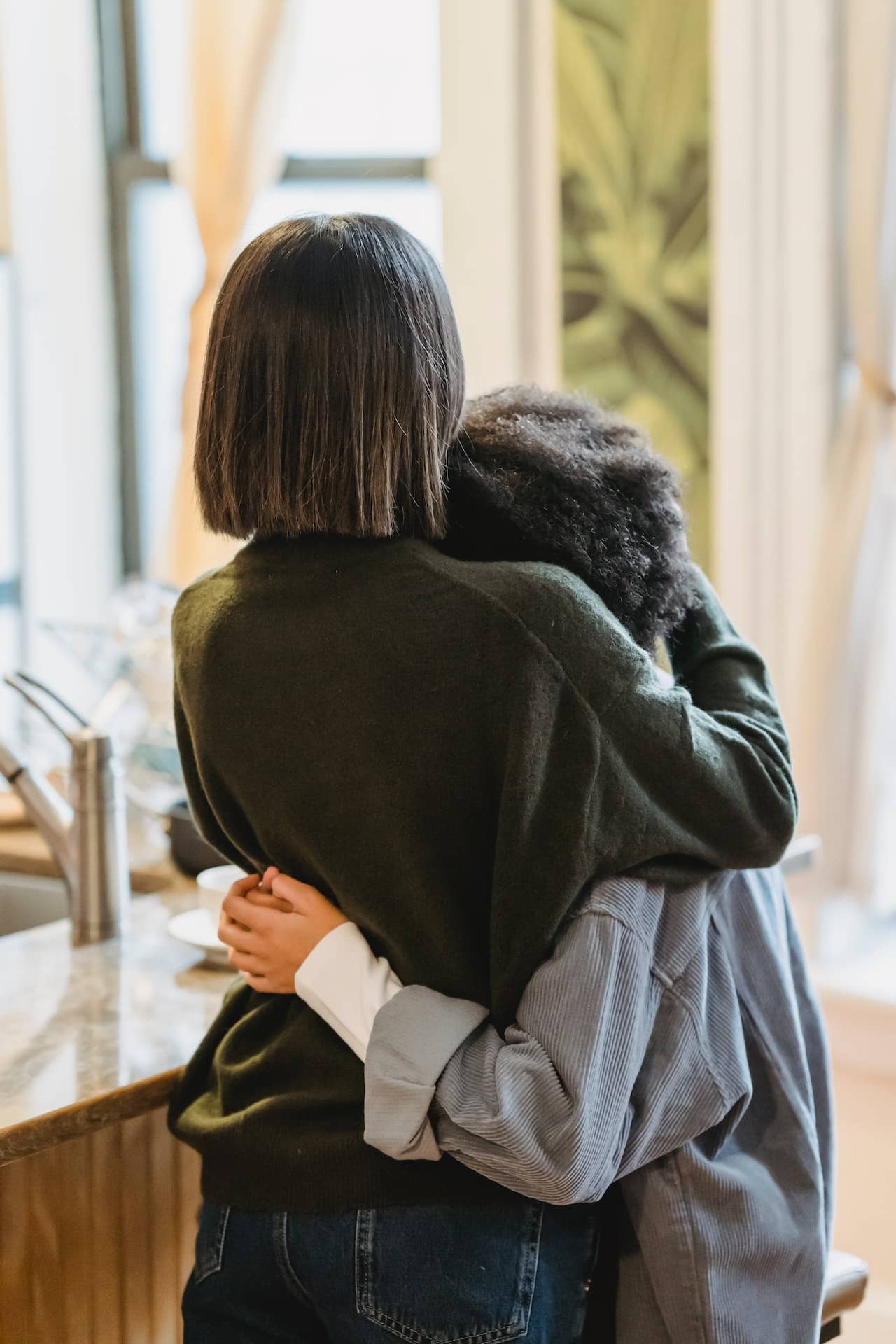We all experience grief many times throughout our lives, but we often have difficulty recognizing grief for what it is. San Francisco therapist Dr. Maya Borgueta discusses four types of grief that we don’t talk about enough.
August 30 is National Grief Awareness Day, but for therapists, grief is a huge part of our work year round.
The word “grief” is often associated with the death of a loved one. This type of grief can be one of the most excruciating things we as humans have to go through. Losing a partner, a child, even a beloved pet can be a devastating emotional bomb. Often, it’s transformative. Even when we heal, life is never the same again.
However, the human experience of grief is also much more than that. Grief is a complex process of dealing with the many different types of losses we experience throughout our life. It can come up in times of deep sadness, but it can also live side-by-side with experiences that bring us joy.
As a psychologist, part of my job is to help my clients develop awareness of when grief is coming up for them. When we don’t realize we’re experiencing grief—or don’t give ourselves permission to feel it—we can get emotionally stuck. We can’t bypass grief or talk ourselves out of it. We need to recognize it and move through it.
So in honor of Grief Awareness Day, these are four types of grief we don’t talk about enough. Maybe you’ll recognize yourself in one of these.
Four Types Of Grief That Deserve To Be Recognized
Transitional Grief
If you’ve ever felt yourself feeling surprisingly melancholy or nostalgic during a big life transition, you may have been experiencing transitional grief.
Often, my clients are unsurprised to be grieving when they’re navigating a transition we typically associate with loss, like a divorce or a layoff. But transitions we generally consider “positive” come with loss too.
For example, getting engaged to the love of your life might be something to celebrate. But that doesn’t negate the real losses marriage comes with. Some people may grieve the freedom that singlehood offers. Others might grieve the ways their relationships with other important people in their life change.

In a similar vein, getting pregnant can mean the joyful start of a new family. But it can also mean saying goodbye to spontaneous hangouts with friends. You may need to deprioritize things you have previously enjoyed from your calendar and your budget. Pregnancy can also mean significant changes in your body’s appearance and abilities, which can also trigger feelings of loss.
Sometimes my clients are alarmed to be experiencing mixed emotions during happy transitions. They may take it as a sign that they’ve made a bad decision, or that something is wrong. But it’s important to recognize that transitional grief is a normal, healthy part of change. Acknowledging loss doesn’t take anything away from the positive thing we’re moving towards.
Breakup Grief
Everyone who has been through a breakup knows they can be heart wrenchingly painful. But I’m still including breakup grief on this list because I think there are lots of myths about when and how we’re supposed to process loss after a breakup.
The TV version of a breakup usually goes something like this: The person who gets dumped spends a short period feeling depressed. They eat ice cream out of the container, refuse to get out of bed, spend a few days obsessing over their ex’s social media. Their friends drag them out to get drunk, maybe have a fling. They feel better when they meet someone new.

In real life, breakup grief is a lot less linear. We’re navigating not only the loss itself, but the loss of the support system that used to help us get through tough things. We might be grieving the abrupt loss of other relationships with our ex’s family and friends. And often, we’re grieving the loss of a sense of security, stability, or our hopes for a future together.
The grief of the partner who initiates a breakup is often not recognized at all. I sometimes speak to clients who feel embarrassed about being sad after a breakup they chose. At times, they’re even guilty about having their own feelings, knowing they’ve caused pain to someone they care about. Often, they’re grieving the fact that a relationship just can’t meet their needs, despite having tried long and hard to make it work. When someone initiates a breakup, they may get less emotional support from family and friends, who assume they don’t need it.
The breakup of a non-romantic relationship like a close friendship can also trigger significant feelings of grief and loss. Friendship break ups are also typically seen as less “serious” and needing of care from one’s support system, which can add to their challenge.
Grief After Miscarriage or Pregnancy Loss
The grief surrounding miscarriage and pregnancy loss is often shrouded in silence and isolation. Our reproductive health is intensely personal and private. And it should be up to each individual to decide if and how they want to discuss the loss of a pregnancy.
But unfortunately, stigma and shame often make it difficult to reach out for support when we do want it. In a world where women’s and trans folks’ reproductive health is treated as a political football, and individual choices are scrutinized, discussing a pregnancy loss can understandably feel unsafe or taboo.
When people do seek support, they are sometimes met with dismissal or minimization of their pain. At times, this may be a well-intentioned (but still hurtful) attempt to offer comfort, or a lack of understanding of the gravity of the loss. But the grief after a miscarriage is very real. It’s not only the loss of the bond between the parent and the life growing inside. It’s a loss of hopes, dreams, and plans for the future together.
There can also be a loss of one’s sense of control over their own body, combined with guilt at being “unable” to sustain the pregnancy. Some people worry they’ve done something to cause the loss. These feelings can persist even when they know logically that they’ve done nothing wrong.

Grief Over the Loss of an Ability
Over the course of our lives, we all experience the loss of abilities. In some cases, this may happen suddenly, like the effect of an injury. In others, it’s gradual, such as the changes that happen physically and cognitively as we age, or experience a progressive illness.
Losing an ability we previously relied upon (and potentially took for granted) can bring up complex emotions. We may grieve the loss of an activity that brought us pleasure or meaning. We might grieve a loss of independence we previously enjoyed, or the ease in which we were able to complete the same tasks that now require effort. In the case of gradual losses, we may also experience anticipatory grief for the changes we expect to come.
In an ableist society, losing an ability can also mean a loss of status and respect in the eyes of others. We may experience new forms of discrimination, bias, or microaggressions in our daily lives. The combination of these experiences can trigger deep questioning of our identity and place in the world.

Grief is More Than Just an Emotion
Grief isn’t just sadness—it’s a whole constellation of emotions we experience in response to loss.
Feelings of anger and rage are often an important part of the grieving process. As we grieve, we grapple with existential or spiritual questions of fairness, purpose, and the meaning of our suffering.
Grief brings up feelings of guilt, yearning, and numbness. We may experience grief physically as a pain, ache, or hollowness. We can feel fear and anxiety about the future that awaits. Some people are surprised (or dismayed) to feel some relief about parts of the transition that comes after a loss. It’s also common to have experiences of hope, gratitude, or experiences of new clarity and growth after a loss.
Grief is personal and there is no right or wrong way to experience it. However you are feeling as you process a loss deserves compassion and support.
About the Author
Dr. Maya Borgueta is a California psychologist and founder of Stella Nova Psychology, Inc. She works online with clients throughout the state. Maya specializes in supporting women in business and tech, BIPOC and LGBTQ+ clients, and adult children of immigrants.
Life transitions, grief, and losses of all kinds are frequent themes in Maya’s work, and she strongly believes that grief is a normal (and necessary!) part of growth.
Online Therapy for Grief and Loss
Looking for a supportive space where you can process all your feelings around a loss? Stella Nova therapists can help guide you through the grieving process with compassion, care, and zero judgment.
We specialize in working with women and nonbinary professionals with online therapy throughout California. We also can meet you in-person in San Francisco at our Lower Pac Heights location.
To get started, schedule your free, 20-minute phone consultation with our Intake Coordinator today. We’ll chat about what you’re looking for, and match you with the best therapist for your needs and preferences.


